EAMT 2022
JUNE 1 – JUNE 3
The 23rd Annual Conference
of the European Association
for Machine Translation
EAMT 2022
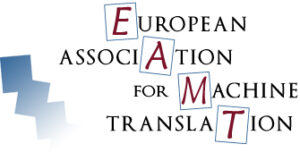
The 23rd Annual Conference of the European Association for Machine Translation (EAMT 2022) will take place in Ghent, Belgium, from June 1-3 2022 and is co-organized by the LT3 Research Team of Ghent University and CrossLang.
As the conference aims at facilitating interaction, it is scheduled as an on-site event.
General chair
Track chairs
Loïc Barrault, Le Mans Université (Research track)
Marta R. Costa-jussà, Univ. Politècnica de Catalunya (Research track)
Ellie Kemp, CLEAR Global (User track)
Spyridon Pilos, European Court of Auditors (User track)
Christophe Declercq, Univ. of Utrecht, Univ. of Leuven &
Univ. College London (Translators’ track)
Maarit Koponen, Univ. of Eastern Finland (Translators’ track)
Mikel L. Forcada, Univ. d’Alacant (Project/Product track)
Organizing committee
Andrew Rufener, CrossLang (co-chair)
Joachim Van den Bogaert, CrossLang
Joke Daems, LT3, Ghent University
Arda Tezcan, LT3, Ghent University
Bram Vanroy, LT3, Ghent University
Margot Fonteyne, LT3, Ghent University
Contact details
For practical questions: infoeamt2022@crosslang.com
For questions about Call for Papers, Programme and Proceedings: eamt2022@ugent.be
PROGRAMME
9:00 – 9:30
Opening of the Conference (Ned Kahn)
9:30 – 10:00
Research Track (Chair: Dimitar Shterionov)
Sebastian Vincent, Loïc Barrault and Carolina Scarton
Controlling Extra-Textual Attributes about Dialogue Participants: A Case Study of English-to-Polish Neural Machine Translation
10:00 – 10:30
Research Track
Ricardo Rei, Ana C Farinha, José G. C. de Souza, Pedro G. Ramos, André F. T. Martins, Luisa Coheur and Alon Lavie
Searching for Cometinho: The Little Metric That Could
10:30 – 11:00
Coffee Break (Ned Kahn)
11:00 – 12:00
Keynote speech (Chair: Lieve Macken)
Jörg Tiedemann
Democratizing machine translation with OPUS-MT
12:00 – 12:45
Poster Boaster (Chair: Mikel Forcada)
12:45 – 14:15
Lunch Break (Expo)
14:15 – 15:00
Poster Session: Project/Product track I
- Anabela Barreiro, José de Souza, Albert Gatt, Mehul Bhatt, Elena Lloret, Aykut Erdem, Dimitra Gkatzia, Helena Moniz, Irene Russo, Fabio Kepler, Iacer Calixto, Marcin Paprzycki, François Portet, Isabelle Augenstein and Mirela Alhasani Multi3Generation: Multi-task, Multilingual, Multi-Modal Language Generation
- Tamás Váradi, Marko Tadić, Svetla Koeva, Maciej Ogrodniczuk, Dan Tufiş, Radovan Garabík, Simon Krek and Andraž Repar Curated Multilingual Language Resources for CEF AT (CURLICAT): overall view
- Dimitar Shterionov, Mirella De Sisto, Vincent Vandeghinste, Aoife Brady, Mathieu De Coster, Lorraine Leeson, Josep Blat, Frankie Picron, Marcello Scipioni, Aditya Parikh, Louis ten Bosh, John O’Flaherty, Joni Dambre and Jorn Rijckaert Sign Language Translation: Ongoing Development, Challenges and Innovations in the SignON Project
- Senja Pollak and Andraž Pelicon EMBEDDIA project: Cross-Lingual Embeddings for Less- Represented Languages in European News Media
- Ana Guerberof-Arenas and Antonio Toral CREAMT: Creativity and narrative engagement of literary texts translated by translators and NMT
- Alina Karakanta, Luisa Bentivogli, Mauro Cettolo, Matteo Negri and Marco Turchi Towards a methodology for evaluating automatic subtitling
- Ekaterina Lapshinova-Koltunski, Maja Popovic and Maarit Koponen DiHuTra: a Parallel Corpus to Analyse Differences between Human Translations
- Maarit Koponen, Kais Allkivi-Metsoja, Antonio Pareja-Lora, Dave Sayers and Márta Seresi LITHME: Language in the Human-Machine Era
- Gabriele Sarti and Arianna Bisazza InDeep × NMT: Empowering Human Translators via Interpretable Neural Machine Translation
- Masaru Yamada, Takanori Mizowaki, Longhui Zou and Michael Carl Trados-to-Translog-II: Adding Gaze and Qualitivity data to the CRITT TPR-DB
- Margot Fonteyne, Maribel Montero Perez, Joke Daems and Lieve Macken Writing in a second Language with Machine translation (WiLMa)
- Pierrette Bouillon, Johanna Gerlach, Jonathan Mutal and Marianne Starlander The PASSAGE project : Standard German Subtitling of Swiss German TV content
- Arda Tezcan Dynamic Adaptation of Neural Machine-Translation Systems Through Translation Exemplars
- Fernando Alva-Manchego and Matthew Shardlow Towards Readability-Controlled Machine Translation of COVID-19 Texts
- Joke Daems and Janiça Hackenbuchner DeBiasByUs: Raising Awareness and Creating a Database of MT Bias
- Natalia Resende MTrill project: Machine Translation Impact on Language Learning
- Sheila Castilho and Natália Resende MT-Pese: Machine Translation and Post-Editese
- Sheila Castilho DELA Project: Document-level Machine Translation Evaluation
- Pintu Lohar, Guodong Xie and Andy Way Developing Machine Translation Engines for Multilingual Participatory Spaces
- Mikel L. Forcada, Pilar Sánchez-Gijón, Dorothy Kenny, Felipe Sánchez-Martínez, Juan Antonio Pérez Ortiz, Riccardo Superbo, Gema Ramírez Sánchez, Olga Torres-Hostench, Caroline Rossi MultitraiNMT Erasmus+ project: Machine Translation Training for multilingual citizens (multitrainmt.eu)
15:00 – 15:30
Coffee Break (Expo)
15:30 – 16:00
Translator Track
Justus Brockmann, Claudia Wiesinger and Dragos Ciobanu
Error Annotation in Post-Editing Machine Translation: Investigating the Impact of Text-to-Speech Technology
16:00 – 16:30
Translator Track
Alina Karakanta, Luisa Bentivogli, Mauro Cettolo, Matteo Negri and Marco Turchi
Post-editing in Automatic Subtitling: a subtitlers’ perspective
16:30 – 17:00
Translator Track
Sabrina Girletti
Working with pre-translated texts: findings from a survey on post-editing and revision practices in Swiss corporate in-house language services
17:00 – 19:00
Opening reception (Expo)
8:30 – 9:00
Registration
9:00 – 9:30
Platinum sponsor (Ned Kahn; Chair: Helena Moniz)
Christian Federmann
Microsoft Translator’s quest to break down language barriers
9:30 – 10:00
Best Thesis Award (Chair: Carolina Scarton)
Mattia Antonino Di Gangi
Neural Speech Translation: From Neural Machine Translation to Direct Speech Translation
10:00 – 10:30
Best Thesis Award
Danielle Saunders
Domain Adaptation for Neural Machine Translation
10:30 – 11:00
Coffee Break (Ned Kahn)
11:00 – 11:30
Research Track (Chair: Arda Tezcan)
Nishant Kambhatla, Logan Born and Anoop Sarkar
Auxiliary Subword Segmentations as Related Languages for Low Resource Multilingual Translation
11:30 – 12:00
Research Track
Taido Purason and Andre Tättar
Multilingual Neural Machine Translation With the Right Amount of Sharing
12:00 – 12:45
Poster Boaster (Chair: Mikel Forcada)
12:45 – 14:15
Lunch Break
14:15 – 15:00
Poster Session: Project/Product track II
- Luisa Bentivogli, Mauro Cettolo, Marco Gaido, Alina Karakanta, Matteo Negri and Marco Turchi
Extending the MuST-C Corpus for a Comparative Evaluation of Speech Translation Technology - Eirini Kaldeli, Mercedes García-Martínez, Antoine Isaac, Paolo Sebastiano Scalia, Arne Stabenau, Iván Lena Almor, Carmen Grau Lacal, Martín Barroso Ordóñez, Amando Estela and Manuel Herranz
Europeana Translate: Providing multilingual access to digital cultural heritage - Raúl Vázquez, Michele Boggia, Alessandro Raganato, Niki A. Loppi, Stig-Arne Grönroos and Jörg Tiedemann
Latest Development in the FoTran Project – Scaling Up Language Coverage in Neural Machine Translation Using Distributed Training with Language-Specific Components - Itziar Aldabe, Jane Dunne, Aritz Farwell, Owen Gallagher, Federico Gaspari, Maria Giagkou, Jan Hajic, Jens Peter Kückens, Teresa Lynn, Georg Rehm, German Rigau, Katrin Marheinecke, Stelios Piperidis, Natalia Resende, Tea Vojtěchová and Andy Way
Overview of the ELE Project - Petra Bago, Sheila Castilho, Jane Dunne, Federico Gaspari, Andre Kåsen, Gauti Kristmannsson, Jon Arild Olsen, Natalia Resende, Níels Rúnar Gíslason, Dana Sheridan, Páraic Sheridan, John Tinsley and Andy Way
Achievements of the PRINCIPLE Project: Promoting MT for Croatian, Icelandic, Irish and Norwegian - Dimitra Anastasiou, Anders Ruge, Radu Ion, Svetlana Segărceanu, George Suciu, Olivier Pedretti, Patrick Gratz and Hoorieh Afkari.
A Machine Translation-empowered Chatbot for Public Administration - André Martins, Ben Peters, Chrysoula Zerva, Chunchuan Lyu, Gonçalo Correia, Marcos Treviso, Pedro Martins and Tsvetomila Mihaylova
DeepSPIN: Deep Structured Prediction for Natural Language Processing - Peggy van der Kreeft, Alexandra Birch, Sevi Sariisik, Felipe Sánchez-Martínez and Wilker Aziz
GoURMET – Machine Translation for Low-Resourced Languages - Carlos Amaral and Peggy van der Kreeft
plain X – AI Supported Multilingual Video Workflow Platform - Carlos Amaral and Sebastião Miranda
Monitio – Large Scale MT for Multilingual Media Monitoring - Elena Murgolo, Javad Pourmostafa and Dimitar Shterionov
A Quality Estimation and Quality Evaluation Tool for the Translation Industry - Mattia Antonino Di Gangi, Nick Rossenbach, Alejandro Pérez-González-de-Martos, Parnia Bahar, Eugen Beck, Patrick Wilken and Evgeny Matusov
Automatic Video Dubbing at AppTek - Artūrs Vasiļevskis, Jānis Ziediņš, Marko Tadić, Željka Motika, Mark Fishel, Hrafn Loftsson, Jón Guðnason, Claudia Borg, Keith Cortis, Judie Attard and Donatienne Spiteri
National Language Technology Platform (NLTP): overall view - Toms Bergmanis, Mārcis Pinnis, Roberts Rozis, Jānis Šlapiņš, Valters Šics, Berta Bernāne, Guntars Pužulis, Endijs Titomers, Andre Tättar, Taido Purason, Hele-Andra Kuulmets, Agnes Luhtaru, Liisa Rätsep, Maali Tars, Annika Laumets-Tättar and Mark Fišel
MTee: Open Machine Translation Platform for Estonian Government - Joachim Van den Bogaert, Laurens Meeus, Alina Kramchaninova, Arne Defauw, Sara Szoc, Frederic Everaert, Koen Van Winckel, Anna Bardadym and Tom Vanallemeersch
Automatically extracting the semantic network out of public services to support cities becoming Smart Cities - José de Souza, Ricardo Rei, Ana Farinha, Helena Moniz and André Martins
QUARTZ: Quality-Aware Machine Translation - Artur Nowakowski, Krzysztof Jassem, Maciej Lison, Kamil Guttmann and Mikołaj Pokrywka
POLENG MT: An Adaptive MT Platform - Giorgio Bernardinello and Judith Klein
Background Search for Terminology in STAR MT Translate - Jourik Ciesielski and Heidi Van Hiel
Connecting client infrastructure with Yamagata Europe MT using JSON-based data exchange - Diego Bartolome and Chirs Jacob
Language I/O Solution for Multilingual Customer Support - Marta Bañón, Miquel Esplà-Gomis, Mikel Forcada, Cristian García-Romero, Taja Kuzman, Nikola Ljubešić, Rik van Noord, Leopoldo Pla Sempere, Gema Ramírez-Sánchez, Peter Rupnik, Vít Suchomel, Antonio Toral, Tobias van der Werff and Jaume Zaragoza
MaCoCu: Massive collection and curation of monolingual and bilingual data: focus on under-resourced languages
15:00 – 15:30
Coffee Break (Expo)
15:30 – 16:00
Research Track (Ned Kahn; Chair: Bram Vanroy)
Rudy Loock, Sophie Léchauguette and Benjamin Holt
The use of online translators by students not enrolled in a professional translation program: beyond copying and pasting for a professional use
16:00 – 16:30
Research Track
Tobias van der Werff, Rik van Noord and Antonio Toral
Automatic Discrimination of Human and Neural Machine Translation: A Study with Multiple Pre-Trained Models and Longer Context
16:30 – 17:30
EAMT General Assembly
19:30 – 23:00
Gala Dinner
8:30 – 9:00
Registration
9:00 – 9:30
User Track (Chair: Joachim Van den Bogaert)
Madalena Gonçalves, Marianna Buchicchio, Craig Stewart, Helena Moniz and Alon Lavie
Agent and User-Generated Content and its Impact on Customer Support MT
9:30 – 10:00
User Track
Bianka Buschbeck, Jennifer Mell, Miriam Exel and Matthias Huck
Hi, how can I help you? Improving Machine Translation of Conversational Content in a Business Context
10:00 – 10:30
User Track
Miguel Menezes, Vera Cabarrão, Pedro Mota, Helena Moniz, and Alon Lavie
A Case Study on the Importance of Named Entities in a Machine Translation Pipeline for Customer Support Content
10:30 – 11:00
Coffee Break (Ned Kahn)
11:00 – 12:00
Keynote speech (Chair: Andrew Rufener)
Laura Rossi
I once said to my boss ‘SMT will never work…
12:00 – 12:45
Poster Boaster (Chair: Joke Daems)
12:45 – 14:15
Lunch Break
14:15 – 15:00
Poster Session: Research and User Tracks
- Dongqi Pu and Khalil Sima’An
Passing Parser Uncertainty to the Transformer. Labeled Dependency Distributions for Neural Machine Translation - Àlex R. Atrio and Andrei Popescu-Belis
On the Interaction of Regularization Factors in Low-resource Neural Machine Translation - Minghan Wang, Jiaxin Guo, Yuxia Wang, Daimeng Wei, Hengchao Shang, Yinglu Li, Chang Su, Yimeng Chen, Min Zhang, Shimin Tao and Hao Yang
Diformer: Directional Transformer for Neural Machine Translation - Alina Kramchaninova and Arne Defauw
Synthetic Data Generation for Multilingual Domain-Adaptable Question Answering Systems - Pedro Mota, Vera Cabarrão and Eduardo Farah
Fast-Paced Improvements to Named Entity Handling for Neural Machine Translation - Khetam Al Sharou and Lucia Specia
A Taxonomy and Study of Critical Errors in Machine Translation - Lise Volkart and Pierrette Bouillon
Studying Post-Editese in a Professional Context: A Pilot Study - Lieve Macken, Bram Vanroy, Luca Desmet and Arda Tezcan
Literary translation as a three-stage process: machine translation, post-editing and revision - Mark Pluymaekers
How well do real-time machine translation apps perform in practice? Insights from a literature review - Artur Nowakowski, Krzysztof Jassem, Maciej Lison, Rafał Jaworski, Tomasz Dwojak, Karolina Wiater and Olga Posesor
nEYron: Implementation and Deployment of an MT System for a Large Audit & Consulting Corporation - Kamal Gupta, Soumya Chennabasavraj, Nikesh Garera and Asif Ekbal
Pre-training Synthetic Cross-lingual Decoder for Multilingual Samples Adaptation in E-Commerce Neural Machine Translation - Celia Soler Uguet, Fred Bane, Anna Zaretskaya and Tània Blanch Miró
Comparing Multilingual NMT Models and Pivoting - Maria Afara, Randy Scansani and Loïc Dugast
Investigating automatic and manual filtering methods to produce MT-ready glossaries from existing ones
15:00 – 15:30
Coffee Break (Expo)
15:30 – 16:00
Research Track (Ned Kahn; Chair: Tom Vanallemeersch)
Xabier Soto, Olatz Perez-De-Viñaspre, Gorka Labaka and Maite Oronoz
Comparing and combining tagging with different decoding algorithms for back-translation in NMT: learnings from a low resource scenario
16:00 – 16:30
Research Track
Minh-Quang Pham, François Yvon and Josep Crego
Multi-Domain Adaptation in Neural Machine Translation with Dynamic Sampling Strategies
16:30 – 17:00
Closing of the Conference
Keynote Speakers
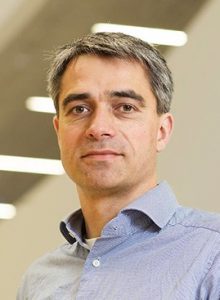
Jörg Tiedemann
Democratizing machine translation with OPUS-MT
The demand for translation is ever growing and this trend will not stop. Being able to access the same kind of information is a fundamental prerequisite for equality in society and translation plays a crucial role when fighting discrimination based on language barriers. Efficient tools and a better coverage of the linguistic diversity in the World are necessary to cope with the amount of material that needs to be handled. Our mission is to support the development of high quality tools for automatic and computer-assisted translation by providing open services and resources that are independent of commercial interests and profit-driven companies. Equal information access is a human right and not only a privilege for people who can pay for it. In this talk I will discuss the current state of OPUS-MT, our project on open neural machine translation and the challenges that we try to tackle with multilingual NLP, transfer learning and data augmentation. I will report about on-going work on knowledge distillation, the creation of compact models for real-time translation and our work on modularization of neural MT.
Bio:
Jörg Tiedemann is professor of language technology at the Department of Digital Humanities at the University of Helsinki. He received his PhD in computational linguistics for work on bitext alignment and machine translation from Uppsala University before moving to the University of Groningen for 5 years of post-doctoral research on question answering and information extraction. His main research interests are connected with massively multilingual data sets and data-driven natural language processing and he currently runs an ERC-funded project on representation learning and natural language understanding.
Website: https://blogs.helsinki.fi/tiedeman/
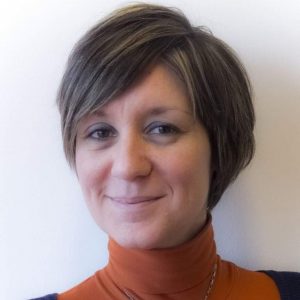
Laura Rossi
"I once said to my boss 'SMT will never work..."
I once said to my boss: ‘SMT will never work…’, yet here we are: after being statistical, MT became neural and even adaptive, and achieved levels of quality that were unthinkable 20 years ago, covering, in addition, more and more language pairs every day. Customizations of MT systems have turned into a commodity, made available through specialized companies, LSPs and even as a self-service model. MT is very well integrated in human translation workflows to lower prices and shorten turnarounds. So, what are users, and in particular corporate users, looking for next? What creates a differentiative and appealing offer? What makes them choose for one or the other vendor? The race is moving towards automation, integration, well-being and sustainability.
Bio:
Laura Rossi has been working as Program Manager Machine Translation at Medtronic since September 2021. Her path with Machine Translation started back in 2002, when she graduated cum laude from the Università Cattolica del Sacro Cuore of Milan with a thesis on the application of Machine Translation technology for software localization. From there, she joined the localization world and has never left. In the past 20 years, Laura has held various roles, including managing an AI group responsible for implementing a large-scale custom SMT (and later NMT) environment for patent translation, terminology expert for customization of rule-based Machine Translation systems, localization manager, linguist and project manager. She also served as an External Expert Evaluator for the European Commission H2020 Program. Laura takes pride in staying on top of cutting-edge industry trends in the field of Machine Translation, and she supports companies’ growth by evangelizing the benefits and encouraging early adoption of innovative language technologies.
PROCEEDINGS
We are pleased to make the proceedings available. They are published as a single digital volume: Lieve Macken, Andrew Rufener, Joachim Van den Bogaert, Joke Daems, Arda Tezcan, Bram Vanroy, Margot Fonteyne, Loïc Barrault, Marta R. Costa-jussà, Ellie Kemp, Spyridon Pilos, Christophe Declercq, Maarit Koponen, Mikel L. Forcada, Carolina Scarton, Helena Moniz. 2022. Proceedings of the 23rd Annual Conference of the European Association for Machine Translation. European Association for Machine Translation, Ghent, Belgium. Retrieved from https://lt3.ugent.be/media/uploads/eamt2022/proceedings-eamt2022.pdf.
REGISTRATION
All prices include VAT. Fees vary depending on whether you are a member of the European Association for Machine Translation (EAMT) or not. If you are not currently a member of EAMT, you may apply for EAMT membership before registering for the conference and then proceed with an EAMT member conference fee.
Early Bird prices will be available until May 9th, 2022. Normal prices will be available until May 26th, 2022.
You will be able to register at the venue on the days of the event if there are still spots available.
Please note that Conference Dinner seats cannot be guaranteed for onsite booking. Please contact us first if you intend to register onsite.
Dinner, lunch and coffee breaks are included in all fees. Accommodation is not included in any conference package and must be booked separately by each attendee.
REGISTRATION FEES in Euros
Early Bird until May 9
Until May 26
Onsite
EAMT MEMBER
250
320
390
NON- MEMBER
320
380
450
EAMT MEMBER STUDENT
180
230
280
NON-MEMBER STUDENT
220
270
320
COMPANION: Conference Dinner and Welcome Reception Only
140
140
140
EAMT MEMBER
EARLY BIRD until May 6th
250
Until May 26
320
Onsite
390
NON-MEMBER
EARLY BIRD until May 6th
320
Until May 26
380
Onsite
450
EAMT MEMBER STUDENT
EARLY BIRD until May 6th
180
Until May 26
230
Onsite
280
NON-MEMBER STUDENT
EARLY BIRD until May 6th
220
Until May 26
270
Onsite
320
COMPANION: Conference Dinner and Welcome Reception Only
EARLY BIRD until May 6th
140
Until May 26
140
Onsite
140
VENUE: ZEBRASTRAAT
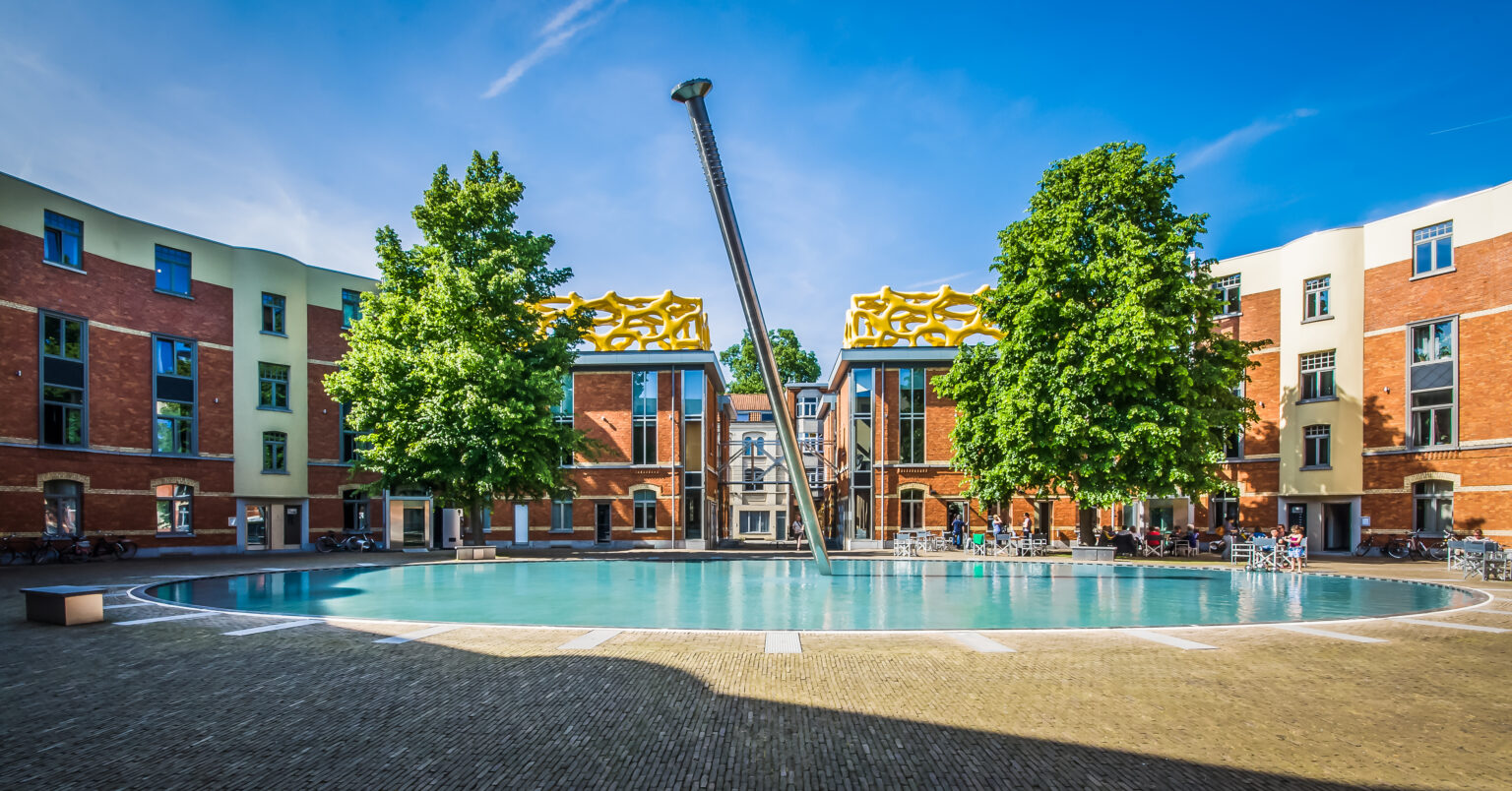
Zebrastraat 32/100 – 9000 Gent – Belgium
In Zebrastraat, historical architecture and contemporary art are combined to constitute a unique setting for all kinds of cultural events. The impressive contemporary art collection of the Liedts-Meesen Foundation is an important part of the site and is well worth a visit in its own right. https://visit.gent.be/en/see-do/zebrastraat
Traveling to Ghent
Ghent does not have its own airport, but is very easy to reach from the two main airports of Belgium: Brussels Airport and Brussels South Charleroi Airport.
From Brussel’s airport:
Gent is approximately 45 minutes away from Brussels Airport, Belgium’s national airport in Zaventem. The airport has its own railway station, Brussels-Airport-Zaventem, which offers a direct connection to Ghent. The railway station is situated beneath the airport and can be reached via the lifts and escalators in the arrivals hall.
“Gent St Pieters or “Ghent Sint Pieters” is the closest station to the venue.
The venue is easily accessible by public transportation. The “Ghent Sint-Pieters” train station is just 2 kilometres away, while the city centre (Korenmarkt) is 2,2 kilometres away.
From “Ghent Sint-Pieters” Train Station:
The nearest bus stop is “Gent Leeuwstraat”, which is an 8 up to 10 minutes drive to/from the train station “Gent Sint-Pieters”.
You can take the following bus lines: 58, 70, 71, 72, 76, 77 of 78. When you arrive at the stop “Gent Leeuwstraat”, walk along the left side of the roundabout, and take the first exit. This is the “Zebrastraat”, where you will find the venue 50 meters further, on your right side.
From the Korenmarkt (city centre), you take tram number 4 direction “Gent UZ/Ledeberg”. After 8 minutes you arrive at stop “Gent Sint-Lievenspoort”. Now walk back 50 meters and turn left. Cross the street and look for the building with the curved shape and with the sign “Jour de Fête”. Enter the building and follow the signs that are customised for EAMT 2022.
If you are coming by car, you can park in the underground parking lot “New Zebra”, in the Gustaaf Callierlaan 231, 9000, Ghent. Coming from the E40 motorway, you follow the signs for the motorway “E17”, direction “Antwerpen/Gent”. Then you follow the signs “Gent Centrum”, that will lead you to the centre by crossing the long bridge (viaduct). Just before the first traffic lights, you turn left and you make a 180 degrees turn around the square (with monument). Now keep right and follow the sign “andere richtingen”, making sure you don’t drive onto the bridge (viaduct) again. After 50 metres and on your right side, you will find the entrance of the parking.
Parking:
Zebrastraat-New Zebra has 90 underground parking spots that can be reached via the Gustaaf Callierlaan, number 231. Park your car (max. height 2m) at the simple rate of 1 euro per hour, every day of the week. Entering is possible between 6AM and 11PM, exiting 24 hours a day. You can pay cash or with Visa.
Recommended hotels in Gent
Vijfwindgatenstraat 19, Binnenstad Gent, 9000 Gent, België
Yalo Urban Boutique Hotel Gent **** – 1400 m.
Brabantdam 33 Brabantdam 33, Binnenstad Gent, 9000 Gent, België
Parkhotel *** – 1400 m.
Nieuwebosstraat 1, Binnenstad Gent, 9000 Gent, België
ibis Gent Centrum St. Baafs Kathedraal *** – 1700 m. -> good connection to the venue with Tram 4.
Limburgstraat 2, Binnenstad Gent, 9000 Gent, België
ibis Gent Centrum Opera *** – 1700 m.
Nederkouter 24, Binnenstad Gent, 9000 Gent, België
Hotel NG Gent Belfort **** – 2000 m. -> good connection to the venue with Tram 4.
Hoogpoort 63, Gent, 9000, Gent, België
Other Useful Links to plan your trip
- Tourist Office: https://visit.gent.be/en
- Map of Ghent: https://www.viamichelin.com/web/Maps/Map-Ghent-9000-Oost_Vlaanderen-Belgium
- Trains in Belgium: www.belgiantrain.be/en
- Buses in Belgium: https://www.delijn.be/en/
CALL FOR PAPERS
Driven by the state of the art, the research community will demonstrate their cutting-edge research and results. Professional machine translation users will provide insight into successful MT implementation of machine translation (MT) in business scenarios as well as implementation scenarios involving large corporations, governments, or NGOs. Translation studies scholars and translation practitioners are also invited to share their first-hand MT experience, which will be addressed during a special track.
We expect to receive manuscripts in these four categories:
- Deep-learning approaches for MT and MT evaluation;
- Advances in classical MT paradigms: statistical, rule-based, and hybrid approaches;
- Comparison of various MT approaches;
- Technologies for MT deployment: quality estimation, domain adaptation, etc.;
- MT in special settings: low resources, massive resources, high volume, low computing resources;
- MT applications: translation/localization aids, speech-to-speech, speech-to-text, optical character recognition, MT for user generated content (blogs, social networks), MT in Computer-aided language learning, etc.;
- Linguistic resources for MT: dictionaries, terminology, corpora, etc.;
- MT evaluation techniques, metrics, and evaluation results;
- Human factors in MT and user interfaces;
- Related multilingual technologies: natural language generation, information retrieval, text categorization, text summarization, information extraction, etc.
Papers should describe original work. They should emphasize completed work rather than intended work, and should indicate clearly the state of completion of the reported results. Where appropriate, concrete evaluation results should be included.
Papers should be anonymized, prepared according to the templates specified below, and no longer than 10 pages (including references); the resulting PDFs submitted to EasyChair EAMT 2022 page (submission type: EAMT2022 Research).
Submissions (up to 10 pages, including references) are invited for reports on case studies and implementation experience with MT in small or medium-size businesses in the language industry, as well as implementation scenarios involving large corporations, governments, or NGOs. Contributions are welcome on the following topics:
- Integrating MT and computer-assisted translation into a translation production workflow (e.g. transforming terminology glossaries into MT resources, optimizing translation memory/MT thresholds, mixing online and offline tools, using interactive MT, dealing with MT confidence scores);
- Use of MT to improve translation or localization workflows (e.g. reducing turnaround times, improving translation consistency, increasing the scope of globalization projects);
- Managing change when implementing and using MT (e.g. switching between multiple MT systems, limiting degradations when updating or upgrading an MT system);
- Implementing open-source MT in the SME or enterprise (e.g. strategies to get support, reports on taking pilot results into full deployment, examples of advanced customization sought and obtained thanks to the open-source paradigm, collaboration within open-source MT projects);
- Evaluating MT in a real-world setting (e.g. error detection strategies employed, metrics used, productivity or translation quality gains achieved);
- Post-editing strategies and tools (e.g. limitations of traditional translation quality assurance tools, challenges associated with post-editing guidelines);
- Legal issues associated with MT, especially MT in the cloud (e.g. copyright, privacy);
- Using MT in social networking or real-time communication (e.g. enterprise support chat, multilingual content for social media);
- Implementing MT to process multilingual content for assimilation purposes (e.g. cross-lingual information retrieval, MT for e-discovery or spam detection, MT for highly dynamic content);
- Implementing MT standards.
Papers should highlight problems and solutions in addition to describing MT integration processes and project settings. Where solutions do not seem to exist, suggestions for MT researchers and developers should be clearly emphasized. For user papers produced by academics, we require co-authorship with the actual users.
Papers should be formatted according to the templates specified below, no longer than 10 pages (including references), and submitted as PDF files to the EasyChair EAMT 2022 page (submission type: EAMT2022 User). Anonymization is not required in the User track submissions.
Please note that 10 pages is the maximum number of pages. Innovative and professional submissions of any length will be evaluated by the committee.
- Tools for machine translation, computer aided translation, and the like (including commercial products and open-source software). The authors should be ready to present the tools in the form of demos or posters during the conference;
- Research projects related to machine translation. The authors should be ready to present the projects in the form of posters during the conference. This follows on from the successful ‘project villages’ held at the last EAMT conferences.
Abstracts should be formatted according to the templates specified below. Anonymization is not required. The abstracts should be no longer than 2 pages (including references), and submitted as PDF files to the EasyChair EAMT 2022 page (submission type: EAMT2022 Products-Projects).
This conference invites translation practitioners and translation scholars to share their views and observations based on their day-to-day experience through submissions reporting on issues such as:
- Measurements of comparative effort (time/keystrokes/cognitive) in translation practices involving MT and their impact on the profession;
- Impact of MT on translators’ work: processes, new invoicing methods (for example, using TER for matching), applicability;
- Psycho-social aspects of MT adoption (ergonomics, motivation, and social impact on the profession);
- Error analysis and post-editing strategies (including automatic post-editing and automation strategies);
- The use of translators’ metadata and user activity data in MT development;
- Freelance translators’ independent use of MT (e.g. for individual productivity and not necessarily a customer requirement);
- MT and usability;
- MT in literary, audiovisual, game localization and creative texts;
- MT and interpreting;
- Ethical and confidentiality issues when using MT;
- MT in various scenarios including health care communication, crisis translation, and climate change;
- MT in the translation/interpreting classroom.
Accepted translator track papers will be published in the conference proceedings. Please make sure to consult and cite previously published work before submitting your paper.
Submissions should be anonymized, prepared according to the templates below, and no longer than 10 pages (including references). Proposals should be submitted as PDF files to the EasyChair EAMT 2022 page (submission type: EAMT2022 Translator).
Please note that 10 pages is the maximum number of pages. Submissions of any length will be evaluated by the committee.
Best Thesis Award
The EAMT Best Thesis Award 2022 for PhD theses defended during 2021 will be awarded at the conference, together with a presentation of the winner’s work. Information for candidates to the award is available here.
The deadline is the same as for the paper submission. Theses should be submitted to the EasyChair EAMT 2022 page (Submission type: Thesis Award).
Paper Templates
Use the templates below to prepare your submission:
Important Deadlines
- Submissions deadline: 01 April 2022
- Notification to authors: 26 April 2022
- Author Registration: 06 May 2022
- Camera ready deadline: 06 May 2022
- Paper submission: March 25, 2022.
- Notification to authors: April 22, 2022.
- Camera-ready deadline: May 2, 2022.
- Author registration: May 2, 2022
- Conference: June 1-3 2022.
All deadlines are at 23.59 CEST.
SPONSORS
Platinum Sponsor

Microsoft develops, manufactures, licenses, supports, and sells computer software, consumer electronics, personal computers, and related services. Its best known software products are the Microsoft Windows line of operating systems, the Microsoft Office suite, and the Internet Explorer and Edge web browsers.
Silver Sponsors
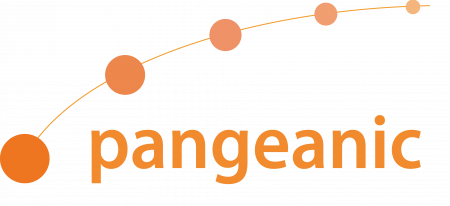
Pangeanic is a leading provider of natural language processing services (deep adaptive machine translation, anonymization, eDiscovery and Knowledge Discovery), content management, translation services, data for artificial intelligence systems training, multilingual publishing, software and documentation translation and localization.

With a wide range of information solutions that meet the needs of today’s internationalized business world, Yamagata helps to connect enterprises with the end users of their products. Offering services such as technical writing, layout, translation and content delivery from offices spread across the globe, the Yamagata information specialists have made it their mission to make everybody understand your message.
Bronze Sponsors
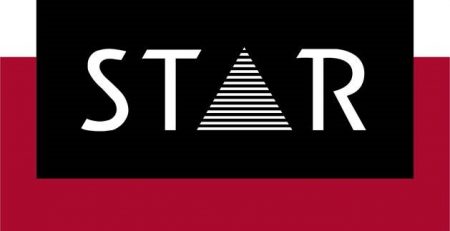
STAR Group is a global leader in comprehensive information solutions. By combining professional services – from authoring and translation to multi-channel and multimedia publication – with enterprise technologies, we can help you to present your company, products and services in the best possible manner.

Unbabel’s Language Operations platform and services integrate seamlessly into your customer support and marketing workflows, making it easy for your brand to grow by building customer trust around the world.

Welocalize accelerates the global business journey by delivering innovative language solutions that enable brands and companies to reach, engage and grow international audiences. Welocalize delivers multilingual content services and localization solutions for over 250 languages with a growing network of over 250,000 in-country linguistic resources. Our people work across North America, Europe and Asia serving our global clients in the markets that matter to them.
Welocalize is classed as one of five ‘Super Agencies,’ the largest language service providers in the world (Slator 2022).
Collaborator Sponsor
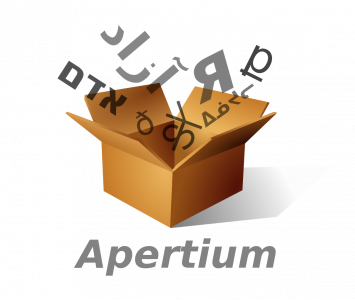
Apertium is a free/open-source machine translation platform providing: a language-independent engine, tools to manage language data, and data for more than 40 languages. You can be part of Apertium: improve the engine or the tools or develop language data.
Supporter Sponsor

Springer is part of Springer Nature, a global publisher that serves and supports the research community across disciplines, making ideas and knowledge accessible around the world. Springer has one of the strongest STM and HSS eBook collections and archives, as well as a comprehensive range of hybrid and open access journals and books under the SpringerOpen imprint. Springer sponsors the EAMT 2022 Best Paper Award.
Institutional Partners

A European leader in translation automation and language technology since 2002, CrossLang provides consulting, systems integration, operation and research to help organizations modernize not just their translation infrastructure, but their translation approaches as well. It’s a holistic approach to “translation modernization” encompassing translation automation, infrastructure, people, and processes, enabling our clients to be faster, more cost effective and more capable in the process.
The Language and Translation Technology Team (LT³) research group of Ghent University conducts fundamental and applied research on different aspects of Natural Language Processing (NLP). LT³ has been at the forefront of the past decade’s cutting-edge research in the field of Translation Technology, working at the crossroads of technology and linguistics.
The team teaches several modules at bachelor and master level. Both the CALM (Computer-Assisted Language Mediation) postgraduate and the European Masters in Technology for Translation and Interpreting are founded on the established expertise in language and translation technology within the research group.
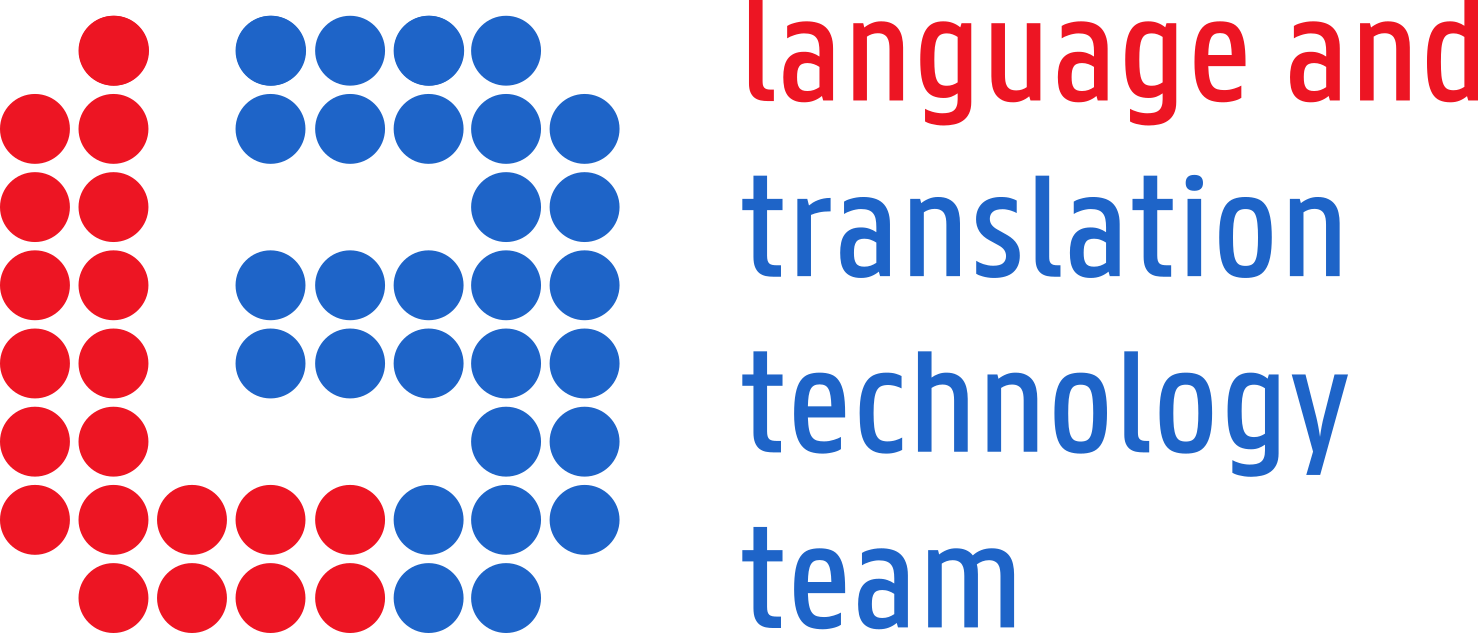
Media Sponsor

Get access to the most in-depth articles at the intersection of language, business, technology, and culture with a complimentary digital subscription to MultiLingual magazine. For more than 30 years MultiLingual has been serving as the world’s source of information for the language industry. Through our magazine, newsletter, website, YouTube channel, podcast, and social media platforms you will find anything you need to know about industry-related events, news, development and opportunities. Head to multilingual.com/EAMT22 to sign up.